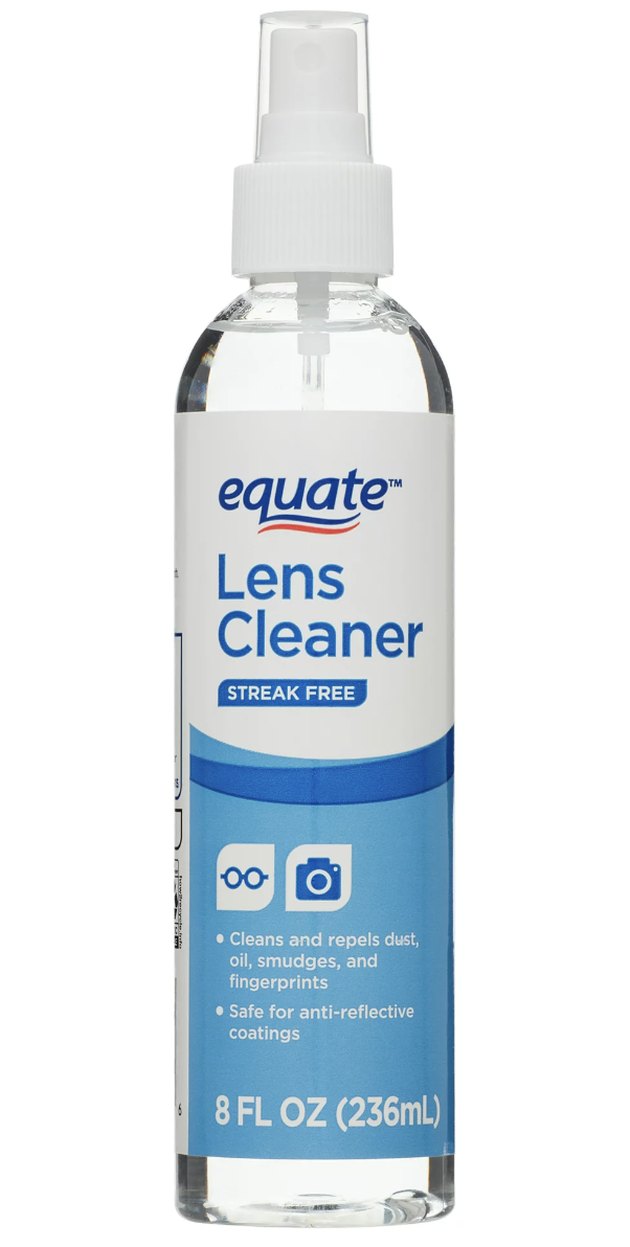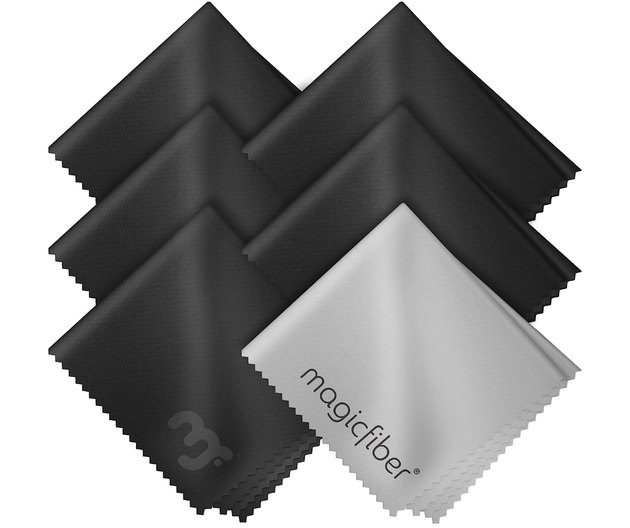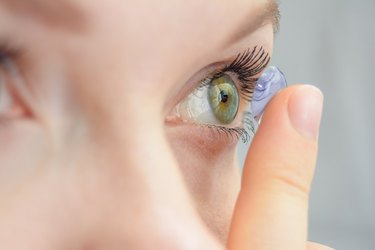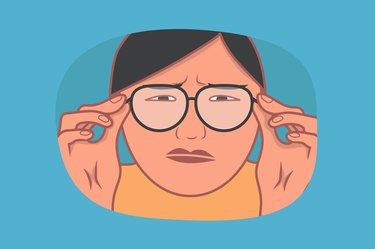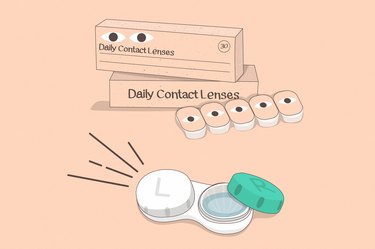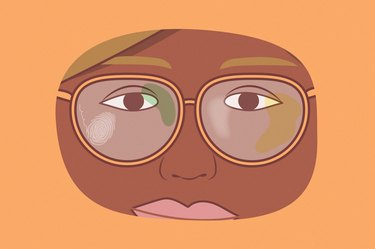
You make it a point to wipe down gym equipment or your yoga mat when you're done working out. You may even remember to clean things like your phone or contact lens case. But when's the last time you cleaned your glasses?
Well, if it's been more than a day, you may want to reassess, experts say.
Video of the Day
Video of the Day
Dirty glasses can make it harder to see clearly, plus they're more prone to getting damaged. And in some cases they could actually mess with your skin or your eyes.
Here's how often you should be wiping them down, plus the best way to do it.
What Happens When You Don't Clean Your Glasses
Sure, dirt and gunk build up on your lenses and frames. But what does that actually mean for your vision and your health?
1. You Can't See as Well
It's probably obvious that a huge smudge on your lenses would make it harder to see clearly. But even little bits of dust or debris can have a negative effect, says Shane Kannarr, OD, an optometrist in Pittsburg, Kansas, and medical reviewer at All About Vision.
"Dirty lenses create blur and limit the amount of light entering the eye," he adds.
2. Your Lenses Might Get Scratched
Bits of dust or debris hanging around on your lenses can lead to scuffs or scratches, Dr. Kannarr points out.
This can end up creating even more problems for your eyesight. "The scratches create blur and can cause halos and glare for the wearer," he says.
3. You're More Prone to Skin Irritation or Breakouts
The dirt and oil that build up on your face throughout the day can get transferred to your frames, especially around the nose or ears. Fail to give the frames a thorough cleaning and you're basically putting the gunk back on your face each day.
"These dirty frames will rub the skin and cause the skin to break down, which could cause a dermatological infection or sore," Dr. Kannarr says.
4. You're at Risk for a Possible Infection
It's possible your dirty glasses could harbor bacteria that can actually make you sick.
In one small study in the November 2018 issue of PLOS One, researchers identified 215 different types of bacteria living on just 21 pairs of glasses — including infection-causing germs like Staphylococcus.
Touch your eyes after touching your frames, and you run the risk of introducing the nasty bugs into your eyes, the researchers say.
So, How Often Should You Clean Your Glasses?
It's a good idea to give your lenses a dedicated cleaning at least once a day, with periodic wipes as needed if you notice that debris or smudges are starting to build up, Dr. Kannarr recommends.
You don't have to be quite as fastidious with the frames, but it's a good idea to clean them at least every couple of days.
How to Clean Your Glasses
Lenses
Once a day, spritz your lenses with an alcohol-free cleaning spray and wipe them dry with a microfiber lens cloth, Dr. Kannarr says.
For quick, on-the-go cleans, just wipe the lenses with the microfiber cloth.
Frames
When it's time to clean your frames, rinse them under warm water and dry them with a microfiber cloth, Dr. Kannarr recommends.
If your nose pads are starting to look gunky, you can also bring them in to your eye doctor. Most have ultrasonic cleaning devices that can quickly and easily remove germs and buildup, he says.
What to Avoid
A few things you shouldn't use to clean your glasses? Paper towels or tissues, which can scratch the surface of your lenses. Steer clear of using saliva on your lenses, too, as it contains natural oils that could also do lens damage, per popular eyewear brand Warby Parker.
As for hand soap or dish soap in lieu of a dedicated lens cleaner, Dr. Kannarr isn't a fan, as many contain abrasives that could potentially cause scratches.
So, How Bad Is It Really to Never Clean Your Glasses?
Cleaning your glasses is a low-effort habit that can yield high rewards like clearer vision, longer-lasting lenses and healthier skin and eyes. So it's worth doing often, experts say.
Not cleaning them "can lead to temporary decreased vision and not getting the full benefits of the lenses," Dr. Kannarr says.
So get your supplies, give your glasses a good wipe and get ready to see a whole lot clearer.
Is this an emergency? If you are experiencing serious medical symptoms, please see the National Library of Medicine’s list of signs you need emergency medical attention or call 911.

